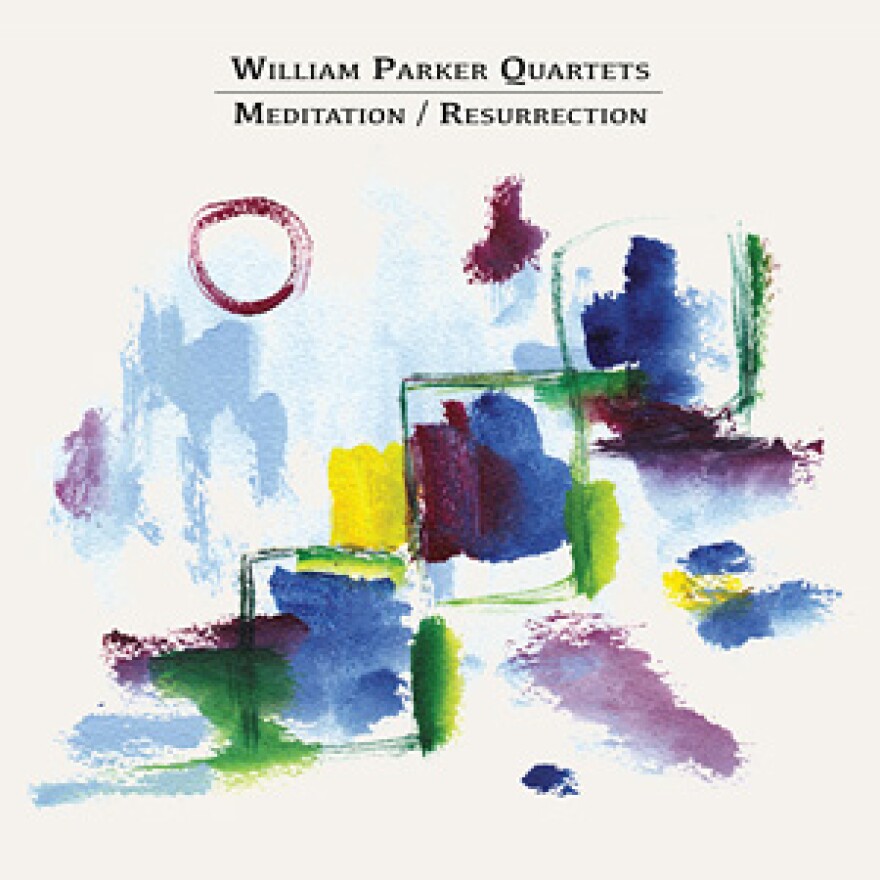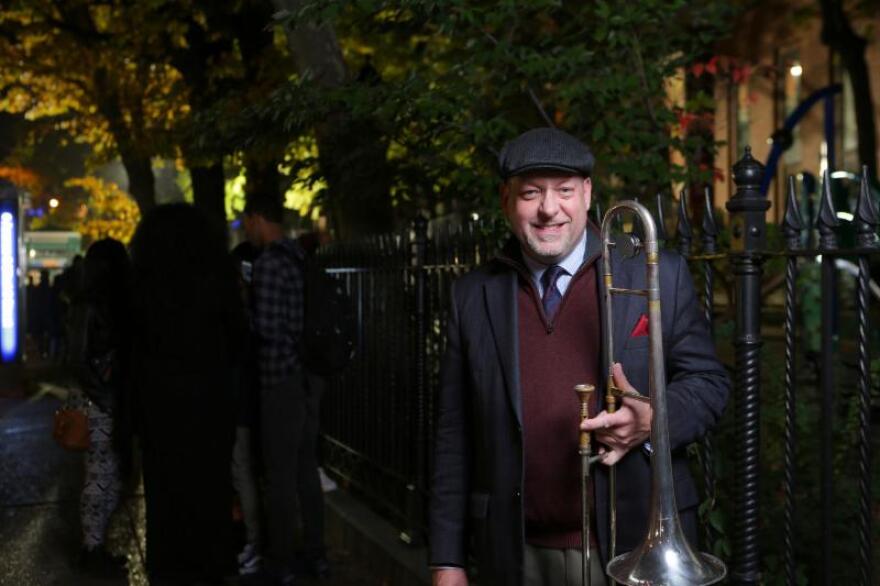The tracks in Take Five this week cover a range from heartsick to hopeful, from resigned to anything but. One track was recorded almost 80 years ago, but sounds as fresh as anything you’re likely to hear. Another has a political thrust clearly aligned with current events. That’s enough preamble for this week; let’s dive right in.
Steve Davis, “Atmosphere”
As its title implies, Think Ahead — the deeply satisfying new release by trombonist Steve Davis, on Smoke Sessions — evokes an ideal of earnest progress. But the album also enacts a sort of family portrait. Recorded not long after the death of Davis’s younger brother, Peter, it bears a dedication in his honor. Beyond that, the personnel amounts to a musical cohort: saxophonists Steve Wilson and Jimmy Greene, pianist Larry Willis, bassist Peter Washington and drummer Lewis Nash.
Davis brings mostly original tunes to the table, and this one, “Atmosphere,” has some back story: he created it using the chord progression to “500 Miles High” by Chick Corea, one of his mentors. Davis gives the tune a swinging cadence, arranging the melody for his trombone, Greene’s tenor and Wilson’s flute. The result is laid-back but forward-thinking, and fittingly so.
William Parker, “Criminals in the White House”

In which bassist and composer William Parker, never the type to hold back, weighs in on current and recent developments involving this nation’s executive branch. The track in question, “Criminals in the White House,” has its premiere here. It opens Meditation / Resurrection, a double album due out on AUM Fidelity on June 23.
The rhythm section, swinging with purpose, consists of Parker and drummer Hamid Drake. And along with some impassioned alto saxophone work by Rob Brown, this track includes a jabbing, bravura trumpet solo by Jalalu-Kalvert Nelson. This is the lineup for the William Parker Quartet, which appears on Disc 1 of the new release. Disc 2 features Parker’s band In Order to Survive, with Cooper-Moore on piano.
In Order to Survive appears on Monday night at Vision Festival 22, as part of a lifetime achievement celebration for Cooper-Moore. The festival, which Parker cofounded, runs through June 3 at Judson Memorial Church in Greenwich Village.
Fats Waller and Friends, “Honeysuckle Rose”

The time-release astonishment machine that is The Savory Collection, administered by our friends at the National Jazz Museum in Harlem, has released another batch of incredible music from the 1930s. Now streaming exclusively through Apple Music, The Savory Collection Volume 3 — Honeysuckle Rose: Fats Waller and Friends is a cornucopia of live radio broadcasts by artists including trumpeter Roy Eldridge and saxophonist Benny Carter.
But the core attraction is an all-star jam jointly led by pianist Fats Waller, trombonist Jack Teagarden and guitarist Eddie Condon in 1938. “Honeysuckle Rose” is one of five tracks from that session, which previously aired just once, on WNEW. Along with Waller’s deliciously raffish vocal performance, it’s notable for some concise but fully formed solos by tenor saxophonist Bud Freeman, trumpeter Charlie Teagarden (Jack’s brother), and clarinetist Pee Wee Russell. The end product is pure ebullience, and a good indication of what this new compilation entails.
Quercus, “You Don’t Know What Love Is”

A collective trio of deliberative prowess, Quercus brings together the eminent English folksinger June Tabor, the English saxophonist Iain Ballamy and the Welsh pianist Huw Warren. Nightfall, the group’s second album on ECM, is largely dedicated to gentle reinventions of traditional fare, like “Auld Lang Syne.” But there are also a few more contemporary songs, including this one.
The tune, “You Don’t Know What Love Is,” comes from the Great American Songbook, and Tabor addresses it squarely, almost like a theatrical monologue. Her vocal delivery doesn’t suggest a cracked vessel, as in the case of Billie Holiday’s indelible version, nor a haunted soul, as in Chet Baker’s. Instead she puts her faith in modest gestures, calmly bending her notes in the song’s title phrase (“you doo-on’t know”) and trusting the mournful character of the melody. Ballamy sweetens the performance with a soft-spoken, expressive tenor solo, and Warren’s chordal accompaniment is as plush and reassuring as a fainting couch.
Louis Hayes, “Hastings Street”
You may have already heard that drummer Louis Hayes dedicated his new album to an old confrere, pianist and composer Horace Silver. But Serenade for Horace also includes one new original tune, which Hayes wrote as a nod to his hometown, Detroit. The song is “Hastings Street,” and it fits right into the larger picture, with a melody that swings even as it evokes island rhythm. There’s a good chance the song will feature into an album-release gig on Tuesday at Dizzy’s Club Coca-Cola, with the full crew: Hayes, vibraphonist Steve Nelson, trumpeter Josh Evans, saxophonist Abraham Burton, pianist David Bryant and bassist Dezron Douglas.



